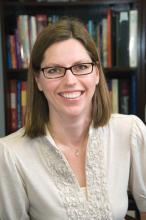.
The new test, required every other year, consists of a 40-question, open-book assessment that surgeons can take on their own computers within the assessment time frame, according to a March 5 announcement. The previous 10-year exam consisted of nearly 250 questions and had to be completed at a highly secure testing center.
Of particular interest to diplomates will be the new rules about when those with expiring certificates will be required to participate in the new assessment. Diplomates with general surgery certificates expiring this year may use the new assessment to continue their certification. All general surgery diplomates are required to start taking the new assessment by 2020, regardless of certificate expiration date. So some diplomates will be taking part in the assessment to maintain certification sooner under the new process than they would have under the old rules.The assessment shift was made to address diplomates’ concerns that the prior exam was burdensome, stressful, and challenging to complete because of its rigid design and location requirements, ABS Chair Mary E. Klingensmith, MD, FACS, said in an interview.
“This new method, which allows a take-from-home or office format, is much less stressful, as both the setting, and the ability to choose the content area, give diplomates much more control,” Dr. Klingensmith said. “Additionally, the testing concepts and references will be provided in advance, should a diplomate desire to know these aspects.”
On March 11, the American College of Surgeons released a statement regarding the new assessment and suggested that, while the new approach is welcomed by the ACS, some details of the process are of concern to surgeons. “The American College of Surgeons (ACS) leadership has heard your concerns both through personal conversations with many of you and through your posts on ACS Communities. In fact, many in leadership share these concerns. We have been in discussions with ABS leadership and can tell you that they are also listening. They want to get this right.”
Of the 40 questions on the new exam, 20 questions will cover core surgical principles, while the other 20 will cover a practice-related area of the diplomate’s choosing. For 2018, diplomates can select from four practice-related areas: general surgery, abdomen, alimentary tract, or breast. More areas are planned based on future feedback from diplomates and surgical societies. Other aspects of the new exam include:
- Topics and references for the various areas will be published in advance on the ABS website.
- Diplomates will be provided with immediate feedback, and will have two opportunities to answer a question correctly.
- A final score of 80% correct will be required to pass.
- Once the assessment is started, diplomates will have 2 weeks to complete the test, with the ability to save and continue when convenient.
The purpose of the new assessment is to provide practicing surgeons with a timely, relevant, and accessible method to stay current with surgical practice knowledge,” Dr. Klingensmith said.
“By selecting a practice-specific area of their own choosing, surgeons will no longer have to study for and be tested upon the entire breadth of general surgery; instead they can focus on those areas that most reflect their practice,” she said. “By submitting to a learning exercise every 2 years, which is focused in the areas of an individual surgeon’s practice, I expect important aspects of knowledge will be transmitted and integrated into a surgeon’s practice. This new program will provide practicing surgeons with an accessible method for keeping up with the constantly changing landscape of surgical practice.”
The new exam is part of an ongoing effort by ABS to revamp its maintenance of certification requirements after widespread criticism that its past provisions were burdensome and irrelevant. In July, ABS announced that it was extending its continuing medical education reporting cycle from 3 to 5 years and reducing the number of required self-assessment by a third. Surgeons now have to report 150 credits over 5 years, 50 from self-assessment CMEs. Under the old system, it was 90 credits over 3 years, 60 of which had to include self-assessment.
After the July announcement, ABS sent surveys to all diplomates to gather feedback about alternatives to the 10-year exam. Nearly 10,000 surgeons responded, according to an ABS summary. The majority of respondents said they wanted more frequent, lower-stakes, open-book assessments that would be required no frequently than every 2 years. Most surgeons were also in favor of being tested on both surgery concepts and practice-specific content.
For 2019 and beyond, the ABS’ Component Boards – Vascular, Pediatric Surgery, Surgical, and Critical Care – will develop their continuous certification processes, Dr. Klingensmith said. Additional areas for the surgery exam also will be developed in collaboration with specialty societies.
In the meantime, registration for the new general surgery assessment opens Aug. 1. The assessment will be available from Sept. 7 to Nov. 5, during which time diplomates can take the assessment at their convenience.
For more information, go to the continuous certification section on the ABS website.

